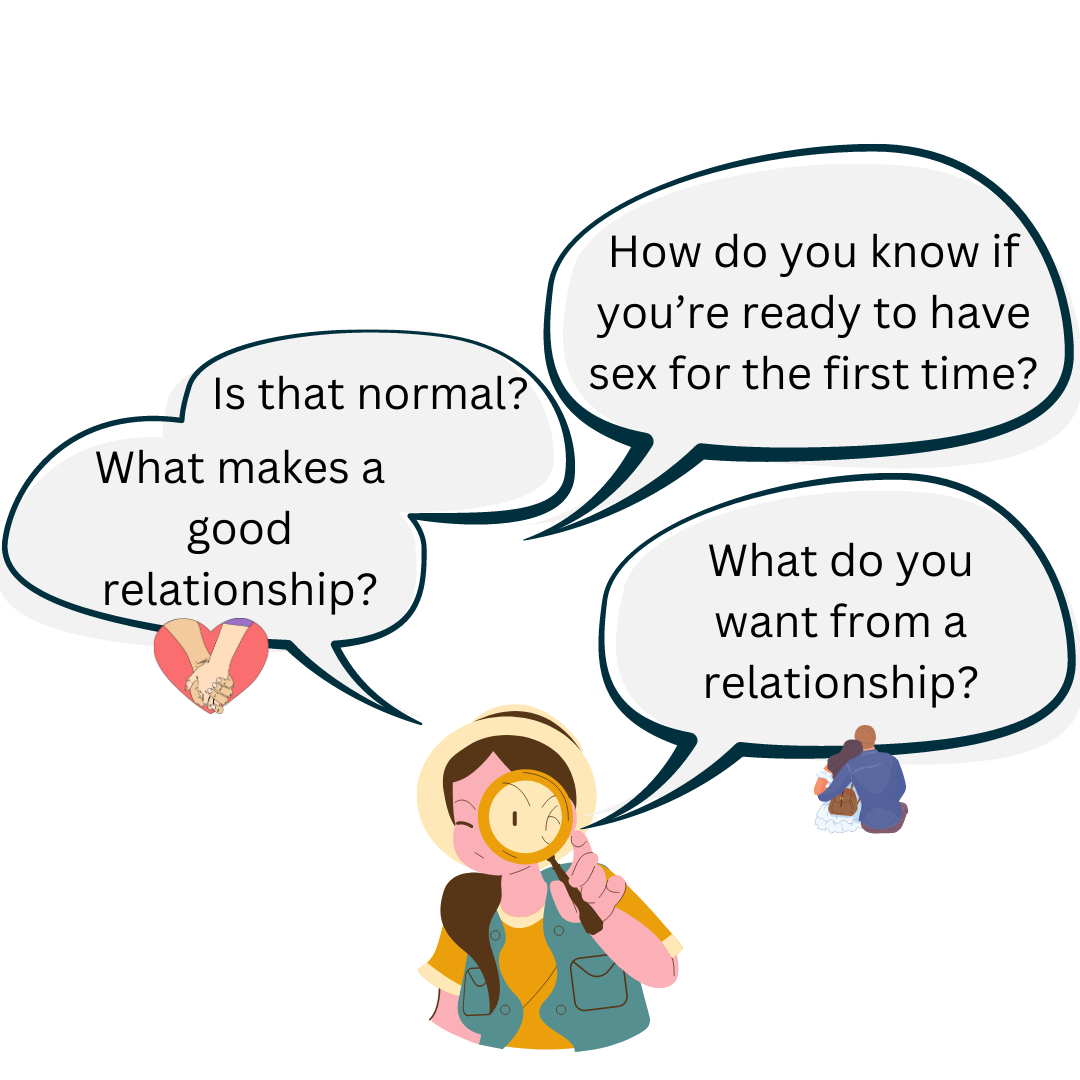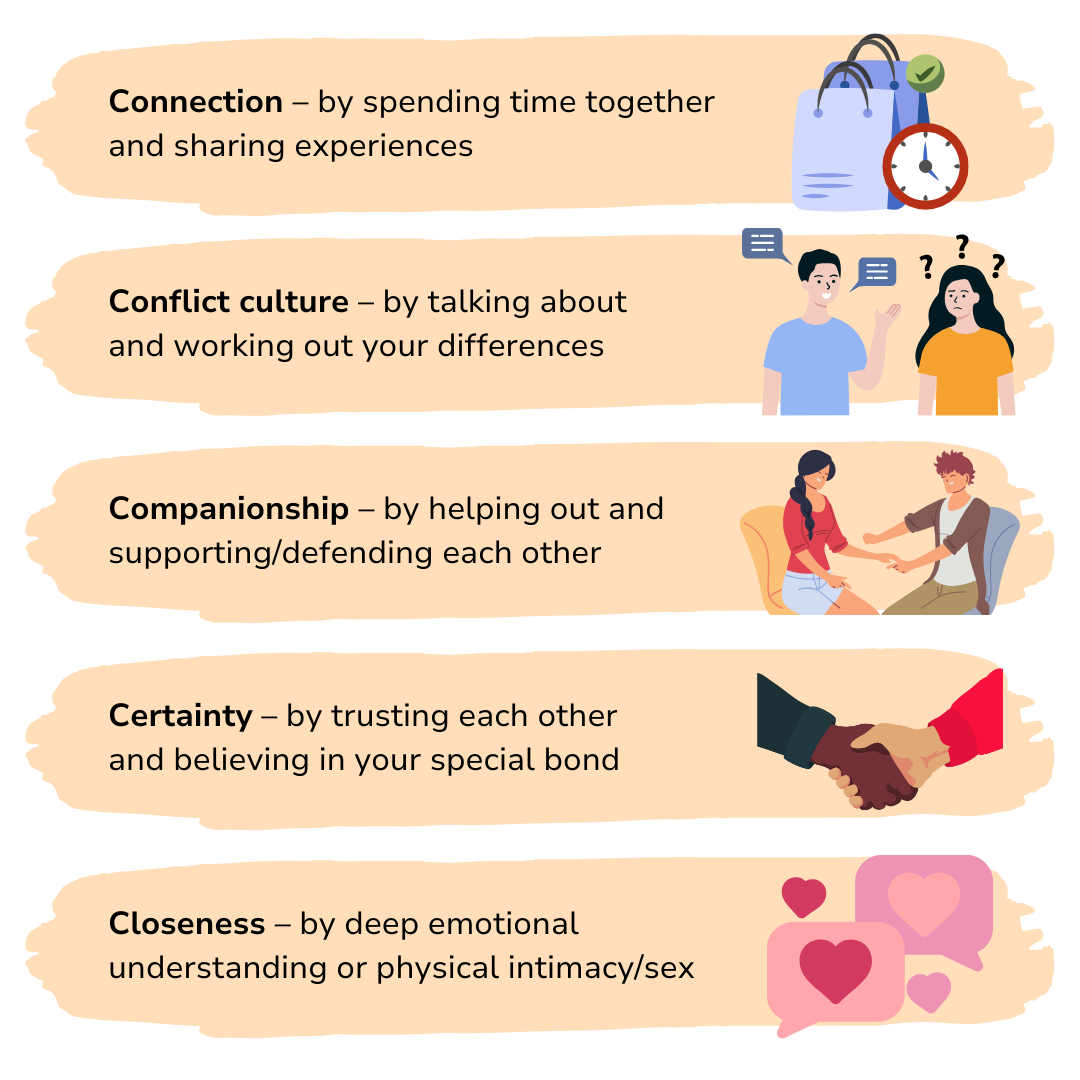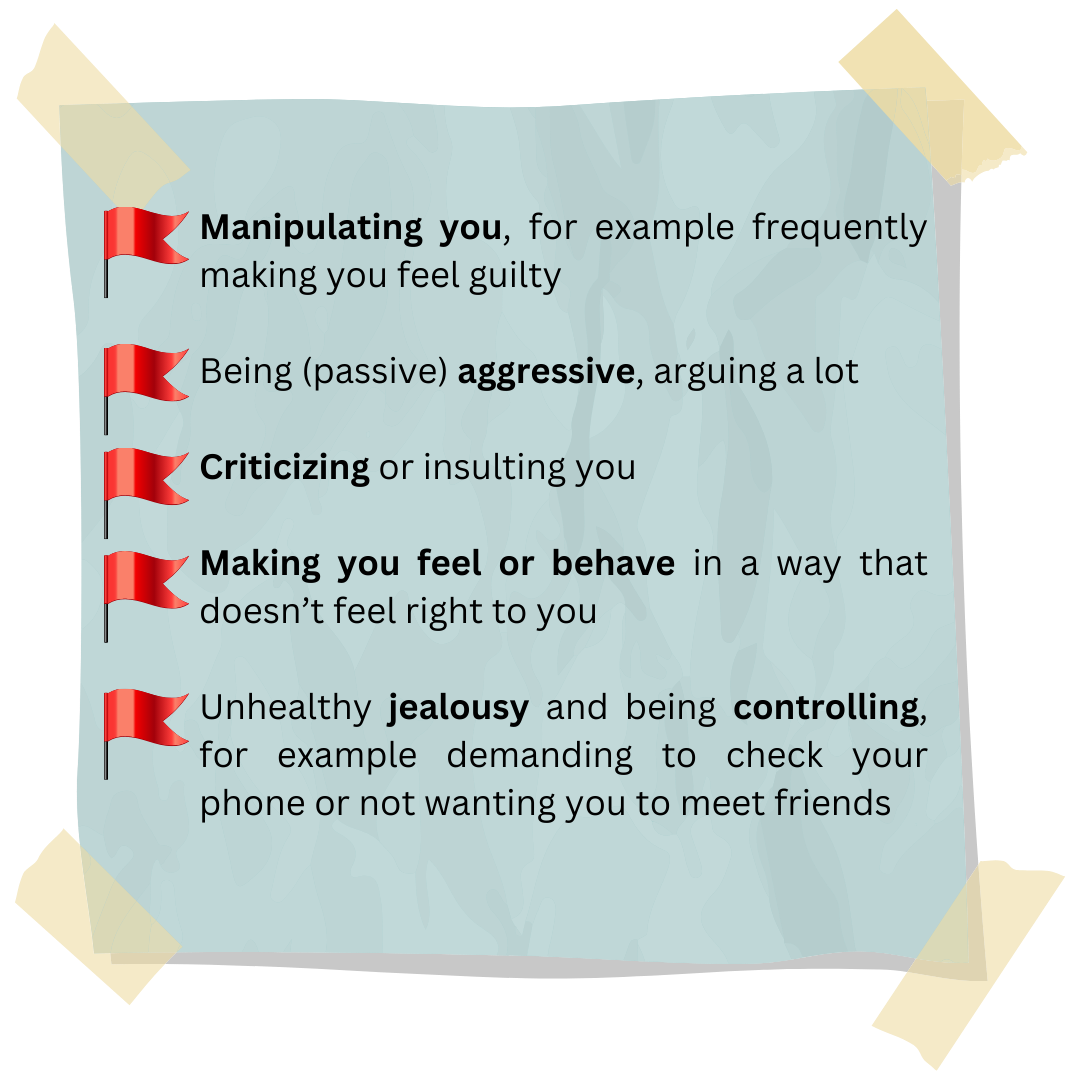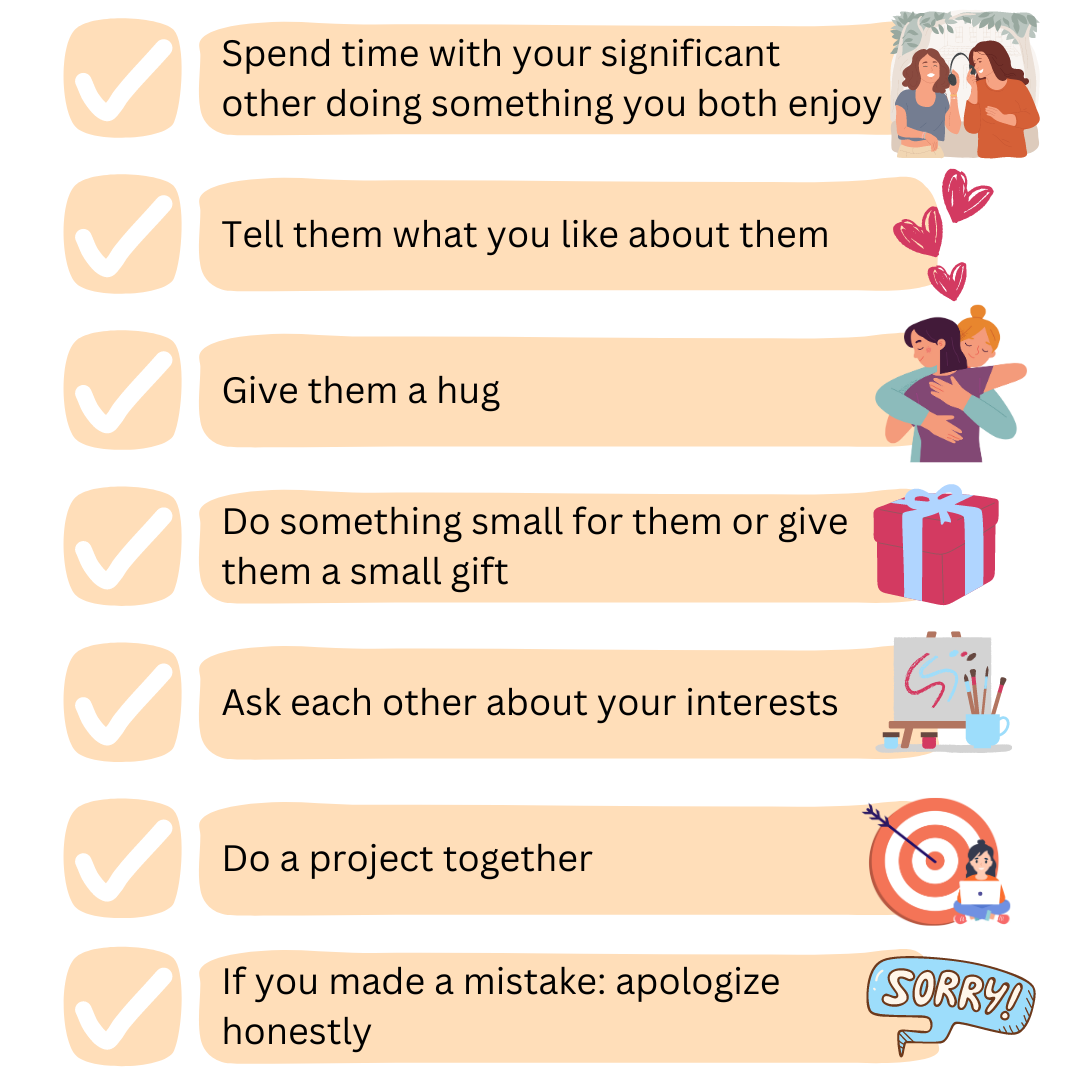Relationships & sexuality
You can find a lot of relationship content on the internet. It’s important to note that every relationship is different, and people online don’t necessarily know what’s best for you.
That doesn’t mean you can’t watch their content – you might still find it helpful or relatable. Just keep in mind that they’re mostly speaking from their own experience, and are not qualified to help with serious problems.

- What makes a good relationship?
- Sex & sexuality – what’s important?
- What counts as a sexual assault?

You want to learn more about relationships?
What makes a good relationship?
There is not one perfect relationship that fits everyone. Our relationships are just as unique as we are. Some couples want to see each other every day or send daily good morning / good night texts, others talk less frequently. There is no “right” way to keep in contact – just what works for you and your significant other.
Nevertheless, there are a few basic tips you can follow:

What’s a toxic relationship?

How can you strengthen your relationship?

Sex & sexuality – what’s important?
Disclaimer: This content is not supposed to provide sex education for you. We’ll focus on the more “psychological” side of sex – not how you do it, but rather how you feel about it
Most people start thinking about having sex in their teens – that’s when the hormones give you your first fantasies and fluttery, exciting feelings. For some people on the other hand, they don’t feel very excited about it and don’t want to do it – which is also okay.
In Germany it’s illegal to have sex with a child younger than 14 years old. If you’re 14 and older, you’re allowed to have sex with people who are also 14 and older.
Also: It’s always illegal to have sex with someone who does not want to! Other countries please adapt this
You might feel pressured, because other people you know have experience and you don’t want to feel left out. That’s understandable – but try to stay cool, take the time you need and take it one step a time.
The first question is: Who would you want to do it with – or do you want to try it out on your own first?
It’s absolutely fine to decide you don’t want to have sex. No one should pressure you to do something you don’t want to do!
In the next step, it’s really important that you agree with the other person what you want to do and what you don’t. Thinking and talking about do’s and don’ts is not unromantic, it shows that you care and will make it a better experience for both of you.
What counts as sexual assault?
Sexual assault means that
- someone forces you
- to watch / participate in any sexual act (and that starts with someone grabbing your boobs)
- hat you did not (or could not) consent to.
If you have experienced something like that, you should talk to an adult you trust and get professional help[ (see helpbox below).
Between 14 and 25, one in five girls has already experienced unwanted sexual attention (at least) once. But boys are also affected - they account for about one third of the reported cases.
Professional support
Click on the button to access an overview of different support contacts to find immediate help.
Get helpTip: Change the language settings to your home country to get a direct overview of the respective support contacts in your country on this site.